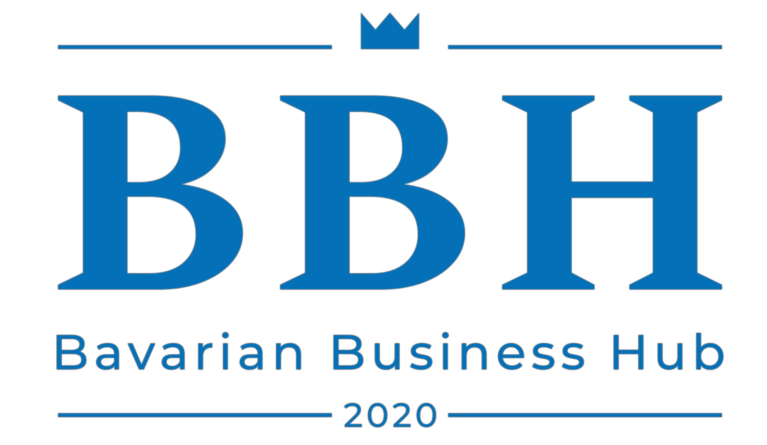
Research shows that coaching leads to better engagement, higher productivity, enhanced performance and customer service. It also helps an employee to improve hi or her performance, overcome challenges, reach aspirational goals, and build selfconfidence. Managers like to transfer the personal development to coaching. But what about the managers themselves – what’s in it for them?
The personal benefits of coaching are wide-ranging and can positively impact an individual’s career. Coaching has been known to boost confidence and improve or build effective skills. Ironically, many C-levels don’t even consider working with coaches. Sometimes, it seems as if executive coaching is dedicated to serving an audience who doesn’t recognize and appreciate its value.
Let´s have a look on C-Level coaching values
Jus like athletes, leaders and managers are under pressure to perform every workday, in a split second. And just like with athletes, coaching is the best way to ensure that leaders can perform at a high level. Making decisions, leading people, motivating people, organizing cooperation of people, developing visions and charisma. When time is of essence, it’s imperative to be able to think quickly, be decisive and to be empathetic. Great managers are made. Not born. That´s why we think that they will take advantage of Executive Leadership Coaching as well.
Challenges for C-Level
C-Level executives often claim that their subordinates need coaching more than they do. Being at the “top” becomes a metaphor for having already proven that they are smart, accomplished, and know what they are doing. But, day by day, many unique challenges tend to face C-levels: rapid change, balance, expectations from the ranks and at least insecurity. To handle these challenges, any human being benefits from coaching, developing new skills, behaviors or strategies and embarking on journey’s towards being better leaders to people.
Management, no matter what part of business you are in, means you have to get things done through people. It´s first and foremost peoples business, a social art that often requires the personal touch. Many new managers are typically chosen for their technical (= hard) skills. The hard skills alone are not enough for a leader or manager to succeed. The soft side of management, dealing with people, is at least as important as technical skills. No, it is more important: If you kill the motivation of people, you kill the existence of the enterprise. To be clear: “Soft” does not mean “cushion” – soft skills reach from empathy until mental strength and endurance.
Qualities of a good manager include the ability to work with others and get things done through people. The biggest challenge for leaders and managers is to be to be clear about themselves, about their motivation, about their strengths and weaknesses, and they have to find an answer to the question: Who am i? Know thyself! It is impossible to work with people and through people, if a leader or manager is not totally clear about himself or herself. Our own blockades blind us the most.
The benefits of C-level executive coaching in detail:
- Identify Strengths & Weakness Executive coaching can help identify strengths and weaknesses. This is a first tough step and honesty is absolutely mandatory. The focus on strengths will be the basis for any further step to ensure that executives are working to the best of their abilities within specific contexts. As for weaknesses, one should learn either to delegate tasks or to raise the weakness to an acceptable level so that it will not jeopardize the career.
- Identify Dreams and Visions
Our world appears to be quite “logical”. Leaders an managers are often supposed to be logical and without emotional traits. This view neglects the fact our biggest resource comes from inside, from our emotions, dreams and visions. If we are aware of them, we are not only more in line with path to success, but we are much more able to develop charisma and motivation for others. - Human effectiveness While many people approach coaches to learn to deal with tactical challenges such as decision making, conflict resolution skills or improving communication with direct reports, often the “soft skills” need improvement the most. Our Senior Expert Thomas Kapp works on “human effectiveness” in his clients’ professional and personal lives. This includes building deeper relationships in work and in life, making a difference in the lives of others in work and in live, powerful and authentic communication, vulnerable exchanges with others and more. Work-Life-Balance is much more than good time management!
- Improve ProductivityOrganisations need to be productive at every level. Leaders and executives can use coaching to ensure their time is being effectively spent and that they are delivering the biggest impact for the organisation. Executives might be working hard, but are they having the biggest impact they possibly could? Some confuse efficiency and effectiveness – at their own agenda and in the processes of the enterprise.This is a question that needs exploring − otherwise one loses lots of time and money.
- Dealing with People „Management is the art of getting things done through people.” (Mary Parker Follet) And Peter Drucker says: „Management is most and foremost about human beings.“ This insight has consequences for being a good leader or manager: Communication, Unbiased Listening, Empathy, Motivation, Development of Potentials, Trust and Courage are qualities required by successful leadership. Coaching will help anybody to become more competent in these areas of success.
- Decision Making
Leaders and managers have often to deal with the unknown, they have to take decisions not knowing all relevant present facts not to mention future ones. Leaders an Managers are risk managers. They cannot give any guaranty for success, but good and bad handling of risks and uncertainties can make a big difference on the road to success.
C-level coaching is a wise investment for any organization, because of the costs and risks associated with appointing a new C-level leader. Coaching helps businesses maximize the chances of great success for their top leadership so that the company will face minimal internal obstacles when pursuing overarching goals. If the concept of C-level coaching interests you, we invite you to learn more about our executive coaching services and coach Thomas Kapp. His coaching is not a technique, not a cooking recipe, but aims at the development of human potentials and corporate personalities. He combines the experience of having been a corporate lawyer with his knowledge of coaching. He wants his clients to be successful in a full sense of meaning by supporting people as coach, advisor and sparring partner to become the best version of themselves. As Bill Gates said: „Everyone needs a coach. It doesn’t matter whether you’re a basketball player, a tennis player, a gymnast or a bridge player. We all need people who will give us feedback. That’s how we improve.“
Are you ready to improve?

